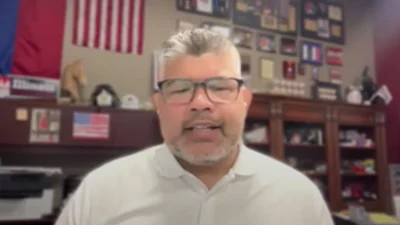Chicago on Monday released its budget forecast for 2021 accompanied by an address from Mayor Lori Lightfoot. The forecast and speech are part of the annual run-up to completion of the coming year’s budget.
Illinois faces a “seismic disruption” of its economy, Lightfoot said. Unfortunately she offered no seismic response or reforms, just vague aspirations and stronger rhetoric.
Let’s look at some of the key things the report and Lightfoot said and break them down:
- The budget shortfall – the “official” one – will hit $800 million this year and $1.2 billion in 2021.
- The “seismic disruption” of Chicago’s economy means 2021 requires a “pandemic” budget. “Also affecting the recovery was looting and damage to our businesses that occurred three months ago and again more recently,” she said.
The seismic disruption was clear long ago, but no aggressive steps were taken to address it, and Lightfoot announced no new ones.
And what kind of “pandemic budget” in a city with a shrinking population that was already broke calls for a spending increase of over 11%? That’s the projected increase from 2020 to 2021 shown in the report.
It’s a similar story for Chicago schools, which have a separate budget. CPS spending is set to go up by 7 percent in 2021.
- Property tax increase, layoffs and furloughs? Maybe, but she said those “are at the end of my list of tools and options.”
Budget steps will probably include use of federal stimulus funds, another $100 million in savings from debt refinancing and further unspecified cuts and borrowing. An increase in the lease tax on computer leases and cloud services appears likely.
However, she claimed that the budget will include contingency plans if federal money does not come through. How? What? We don’t know yet.
And will the savings from refinancing be a one-time gimmick again? Last year, Chicago took cash upfront for the entire savings from refinancing certain bonds. That provided immediate relief but accomplishes nothing for the future, and is no doubt part of why the new analysis shows “financial costs” jumping by a huge $279 million.
- More money from the state: “We will also need our fair share of revenue from Springfield, starting with fully funding the Local Government Distributive Fund.”
- Lightfoot on Monday
Lightfoot brushed off concerns about Chicagoans fleeing, saying, “If we were any different than anyplace else in the country, I’d have even greater concern. But there’s no place in the country that isn’t suffering exactly the same kind of hard choices that we are. The grass is, unfortunately, not greener someplace else.”
- Tax increment finance districts — TIFs — will be raided for their surpluses, Lightfoot clearly indicated.
- The crisis requires “reimagining” the city’s workforce, Lightfoot said, and “making needed changes in places that are not being fully utilized during the remainder of this crisis and in our post-COVID-19 world.”
- And then there’s the big one – pensions. Lightfoot said she wants to find real solutions to the pension crisis and make sure all of the funds are sustainable for years to come, but offered no specifics.
Many Chicagoans and reporters seem to be taking solace that annual contributions are moving towards a supposed “ARC” – an actuarially required contribution level. Two of Chicago’s four pensions already have contributions calculated that way.
But that complacency is misplaced. Even with the new funding formulas, and even using the overly-optimistic assumptions pensions always use, the total unfunded liability is expected to rise until 2033. Then, it only drops because the city supposedly will be able to contribute more than double what it does now. Those numbers were shown in the 2019 financial report, but are omitted for some reason in the 2021 report.
******************
The longer Chicago waits to reform, the deeper the financial hole gets. In fact, the new report shows that, though the losses shown in red are surely understated:
Lightfoot talks a lot about Chicagoans having to “sacrifice,” but two groups that have escaped hardship are city workers and Chicago Public School employees. They’ve yet to be asked to pay any price during the city’s self-imposed shutdown, never mind that the people who pay for public sector workers have largely been crushed by the government-imposed shutdown and recent rioting.
What Chicago really needs to do is begin managing its crisis for what it is – an extreme financial emergency, a workout. With Chicago households on the hook for more than $140 billion in overlapping government pensioner debts, the city is effectively bankrupt. City residents will never be able to pay down that amount of debt. And certainly not if the city remains impaired for years.
Chicago must give its residents real relief through spending reforms and major debt reductions – which will take time. But meanwhile, it should do what it can by reining in government worker costs.





 Alerts Sign-up
Alerts Sign-up